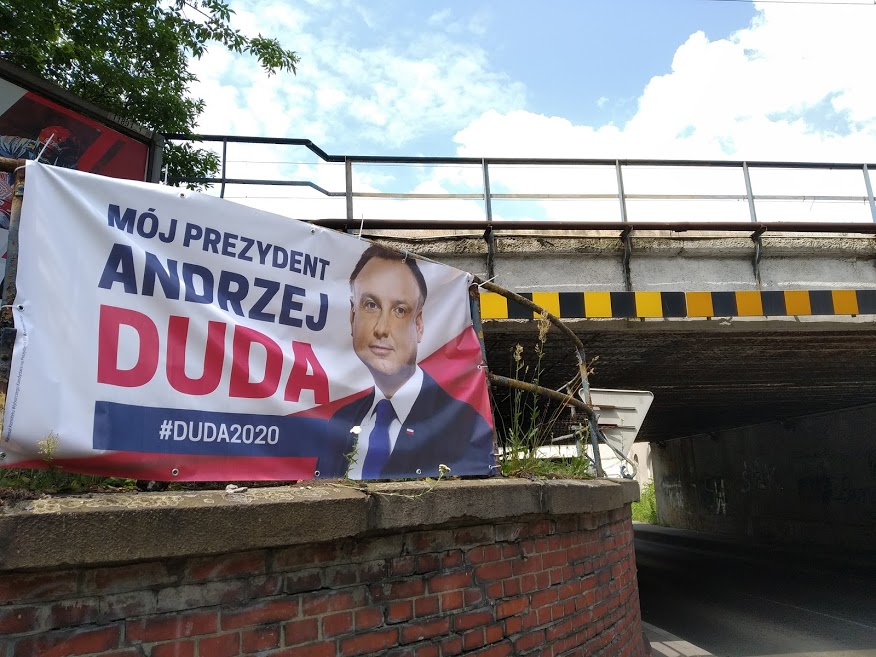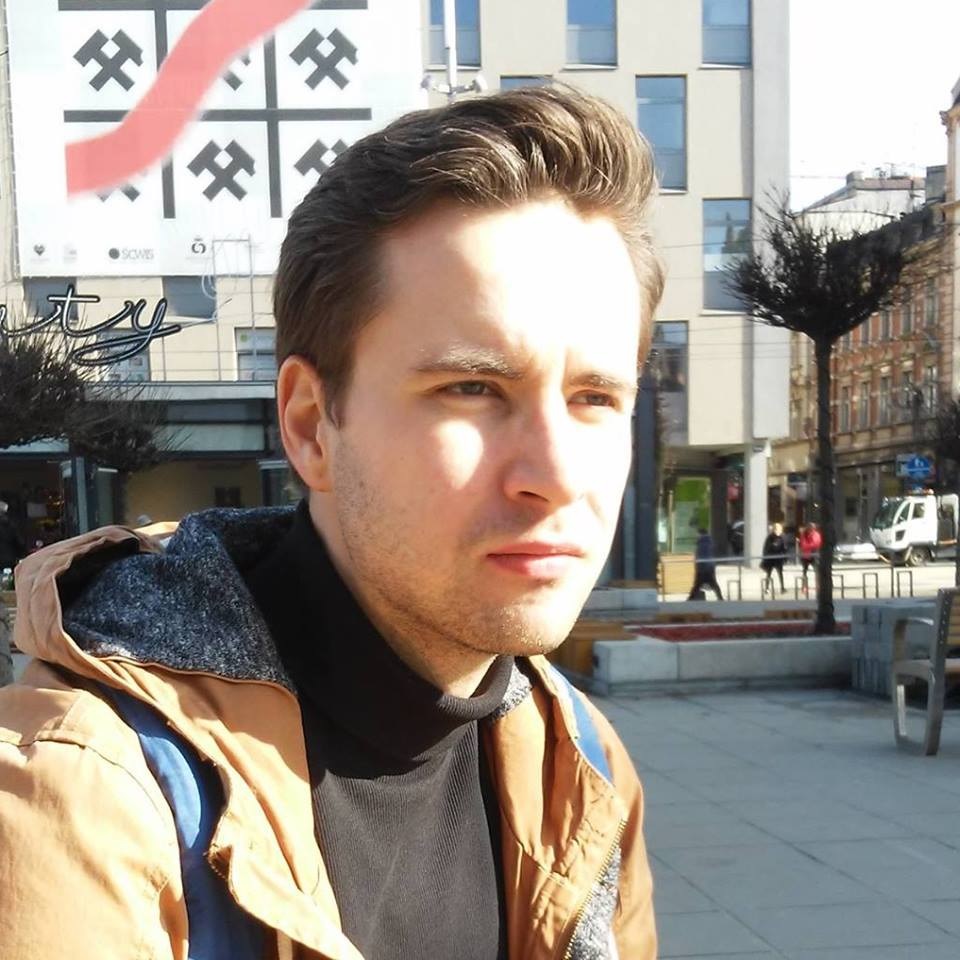By Dariusz Kałan
In early May, four days before standing for re-election, incumbent president Andrzej Duda took part in a televised debate with his rivals. He pitched himself as a successful policymaker with a strong record on the economy and in foreign policy.
But less than half an hour after the debate had ended, the election was called off by Jarosław Kaczyński, chairman of the ruling Law and Justice (PiS) party and Poland’s de facto leader.
Duda seemed to be as surprised as anyone else. To his critics, it was another sign that the president, who hails from and is supported by PiS, is simply an appointee operating at the whim of Kaczyński.
“He’s a conservative but not a homophobe”
In that May election, with campaigning restricted during lockdown, it appeared likely that Duda would convert his dominant position in the polls into an easy victory – which is why PiS pushed so hard to hold the vote amid the epidemic, before eventually being forced to back down.
The president still remains favourite for re-election in this Sunday’s new vote (with a likely run-off two weeks later), but the race promises to be far tighter. And, as polls have narrowed over the last month – following the arrival of a new opposition candidate, Rafał Trzaskowski – Duda’s campaign has appeared inconsistent, as he struggles to find a winning formula.
Most recently, to surprise of many observers, he has adopted more radical rhetoric, describing LGBT as an “ideology” worse than Soviet-era communist indoctrination and declaring the main opposition party to be “a virus worse than coronavirus”.
“He is a conservative, but not a homophobe,” Jolanta Turczynowicz-Kieryłło, Duda’s former campaign manager, insists. “To me, he has always appeared as an open-minded person with no reservations against LGBT people whatsoever.”
She suggests it could be his new staff, formed exclusively by PiS members, that decided to mobilise the conservative base to stop the dip in the polls. After all, only four months ago, ahead of the first, abandoned election, Duda himself said that he would “seriously consider” signing a law on same-sex partnerships.
A Kraków conservative
Early in his career Duda rarely showed any signs of radicalism either. He was born in Kraków, one of traditional seats of Polish conservative intelligentsia, to a family of professors.
He himself went to law school, specialising in administrative law, and then started what seemed to be a typical path for member of the moderate Kraków elite: he joined the centrist Freedom Union party, obtained a PhD, and became a lecturer at the city’s storied Jagiellonian University.
But then, in 2005, he was asked to help with work on a new lustration law, aimed at limiting the participation of former communists in the public life, by Arkadiusz Mularczyk, a new PiS member of the parliament.
At 33 years old, “Andrzej was a fresh face with a well-rooted conservative background, qualities which set him apart from the outgoing post-communist elite,” Mularczyk, who is still an MP, told me. “He was not simply an expert; it was [also] visible that he identifies himself with our values and had political ambitions.”
After the law was passed by parliament, Duda’s political career started to take off. But, over the next decade, it did not rise above relatively junior positions, including a stint working in the chancellery of late president Lech Kaczyński, Jarosław’s twin brother.
When, in 2014, Duda became PiS’s presidential nominee, he was a relatively unknown member of the European Parliament. By contrast, for all his predecessors, the presidency had been the crown on political careers in which they had served as ministers, heads of public institutions, mayors of the capital city, ruling party leaders, speakers of parliament or, in the case of Lech Wałęsa, legendary freedom fighters.
“The accidental president”
According to Michał Kamiński, now an opposition member of the Senate but formerly a PiS MEP and spokesman for President Lech Kaczyński, in 2015 Duda became president “just like Claudius became an emperor: by accident”.
Jarosław Kaczyński, though the dominant figure in PiS, was too controversial and divisive for the nomination. But Duda – “young, quiet, calm, with no views whatsoever, no enemies” – could attract more moderate centrist voters.
And he did so stunningly, defeating previously popular incumbent Bronisław Komorowski. But if centrists expected Duda to follow a moderate approach as president, they were quickly disappointed.
“I saw in him a chance for change,” Paweł Kowal, who served as a minister in Jarosław Kaczyński’s 2006-7 government and voted for Duda in 2015 but is now an opposition MP, told me. “But it shocked me when, as a president, he refused to shake hands and meet with the then prime minister, a non-PiS politician. He was supposed to fight for better standards.”
Instead, within the next five months he made two decisions which cemented his image as Kaczyński’s “notary”, who signs everything that the PiS-dominated parliament sends his way. First, he pardoned Mariusz Kamiński, a former head of the anti-corruption agency and close ally of Kaczyński, who had been found guilty of abuse of power. The pardon allowed Kamiński to be named as a minister in the new PiS government the very same day.
Then Duda signed a controversial bill on the Constitutional Tribunal, starting what many see as PiS’s attack on the independence of the judiciary.
These gestures provoked Ryszard Bugaj, an economist and former adviser to Lech Kaczyński, to leave the National Development Council, an advisory body to the president, in February 2016.
“I realised that independent institutions are now under attack and PiS will do everything to pacify them,” Bugaj, who also backed Duda five years ago, told me. “Duda has proven to be a figure of very small size. I’m not even able to reconstruct his own political views as he shines with the reflected light of Jarosław Kaczyński.”
Haunted by “Adrian”
One word in particular has come to sum up the president’s perceived subservience to Kaczyński: “Adrian.” The nickname stems from popular satirical comedy The Chairman’s Ear, set in the office of the titular chairman, Jarosław, clearly meant to be Kaczyński.
Regularly seen sitting outside the office, waiting to meet the chairman – but never actually being allowed in – is the hapless figure of Poland’s president, Andrzej. Emphasising how insignificant he is, other characters regularly forget his actual name, calling him “Adrian” instead.
The depiction of Duda in The Chairman’s Ear, which was a huge hit after its launch in 2017, “terribly harmed the president’s image,” said Antoni Dudek, a political scientist at Warsaw’s Cardinal Stefan Wyszynski University. “But, it also helped him to gain some hardness and occasionally stand up to his party.”
Duda did subsequently make some efforts to challenge the idea that he is merely the executor of strongman Kaczyński’s will. He has vetoed a handful of laws, including some that would have cemented PiS’s power over local governments or judiciary – though in the latter case he proposed an alternative law of his own that further increased his and the government’s power over the courts.
He pushed for the ousting of defence minister Antoni Macierewicz, a popular figure among hard-line PiS supporters, and the head of state television, Jacek Kurski. The latter, though, has found his way back onto the broadcaster’s board, and may well become its president again after the election. Duda also failed in his efforts to push for a referendum on a new constitution.
More than a cog in Kaczyński’s machine
Duda has been reminded many times that he is just a cog in the machine, one of many soldiers in Kaczyński’s army. But, in fact, he is something more. In many ways, he should be seen as a symbol of the rebirth of the right-wing in Poland.
After all, what opened the door for the PiS’s unprecedented overall majority in the parliamentary elections of October 2015 was Duda’s impressive victory over Komorowski six months earlier – the first PiS triumph after seven successive electoral failures.
This has been a source of his confidence, along with an appeal Duda has successfully built among millions of his supporters to being close to people’s hearts. Opinion polling on trust in politicians has regularly shown Duda in first place, and always among the top two or three.
Duda’s Tour de Pologne: how the president is making small-town Poland his springboard to re-election
“He has been a frequent visitor in small cities and villages, usually bypassed by [previous] presidents,” said Piotr Trudnowski, the head of the Jagiellonian Club, a conservative think tank. “He was able to recognise and give a credit to ‘Poland B’ – less wealthy, more traditionally-oriented – which politicians often do not see from Warsaw.”
He has also grown as a fierce Atlanticist, forging close ties with the Trump administration while expressing scepticism towards the idea of a united Europe.
In 2018, Duda described the European Union as an “imaginary community which is of little relevance to Poles”. In January this year, he warned, in response to Brussels’ criticism of Poland’s judicial reforms, that “they will not impose a system on us in foreign languages”.
This image of the people’s president – critical of European elites, defender of Poland’s security, and a guardian of PiS flagship social programmes – that is now broadcast across the country by public media outlets, which have been turned into propaganda mouthpieces.
But, Duda has tried to take care of his own PR, too. A frequent Twitter user, in late March he also joined TikTok, a social networking service popular among teenagers. In his first video, he promoted video games for kids, accompanied by a meerkat and a proboscis monkey.
But, for Duda’s critics, such stunts in the midst of the coronavirus pandemic were further confirmation that the president lacks the qualities of the statesman.
Main image credit: Dariusz Kałan





















